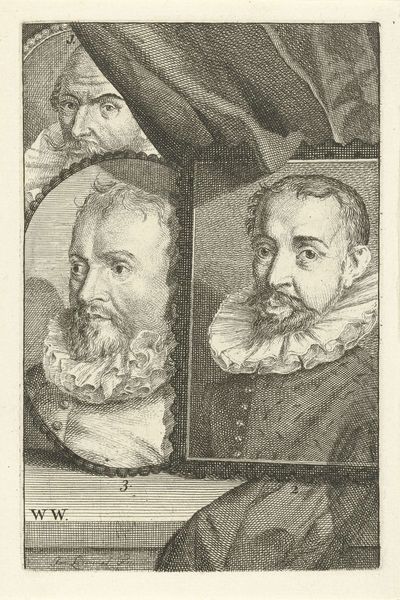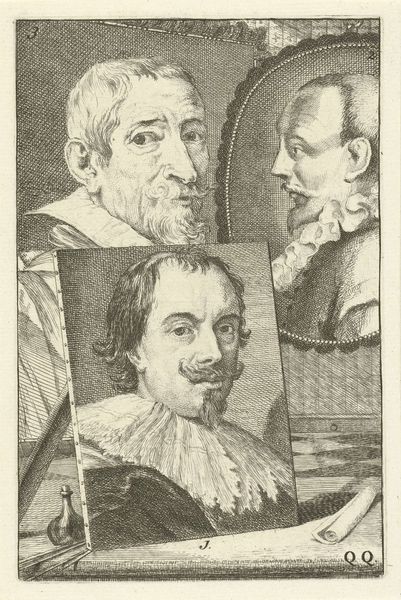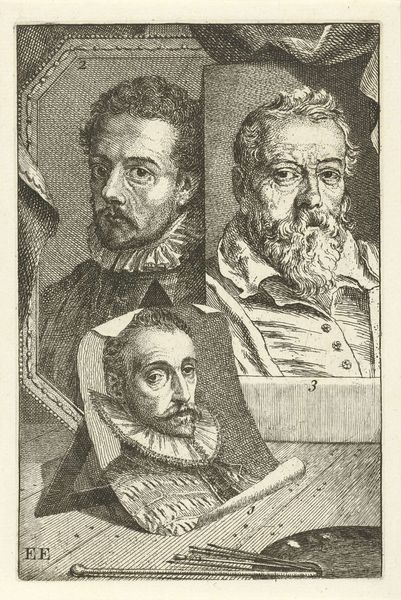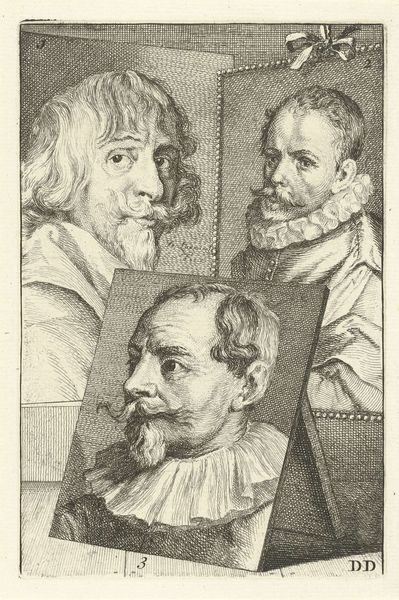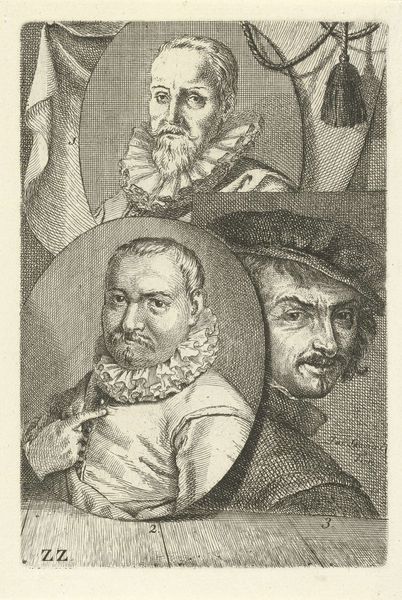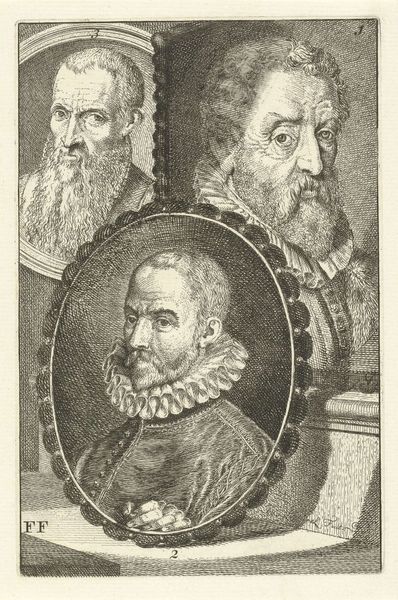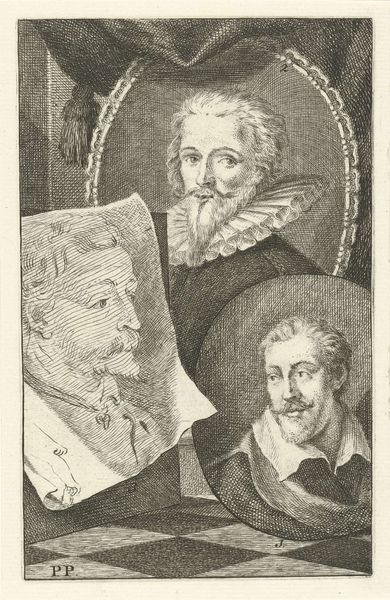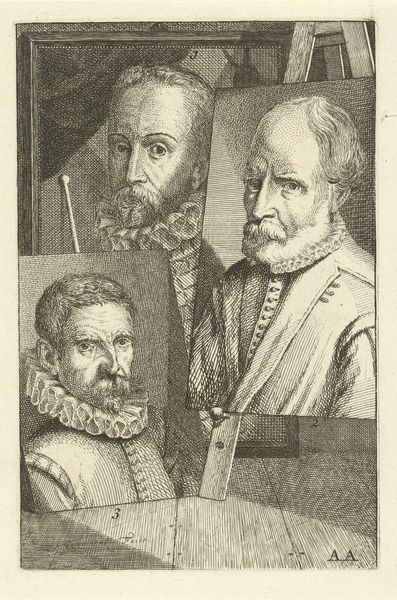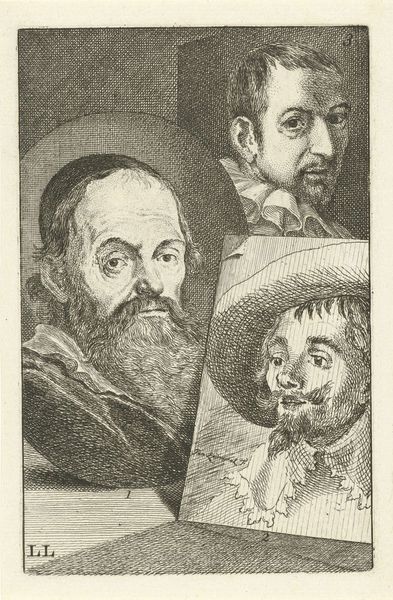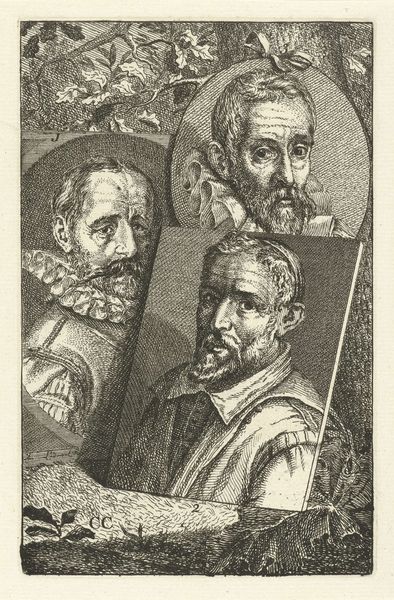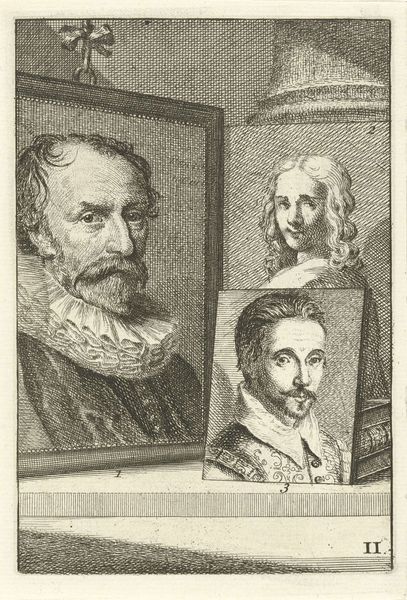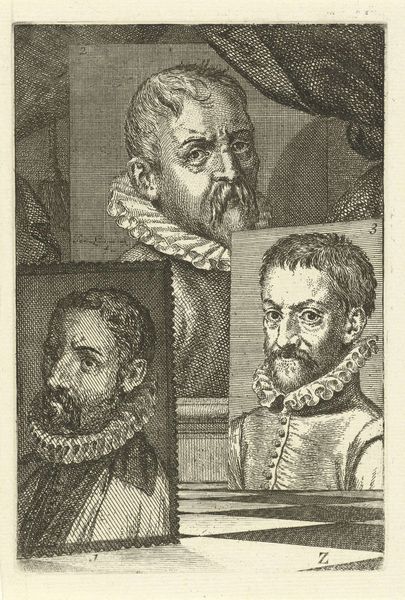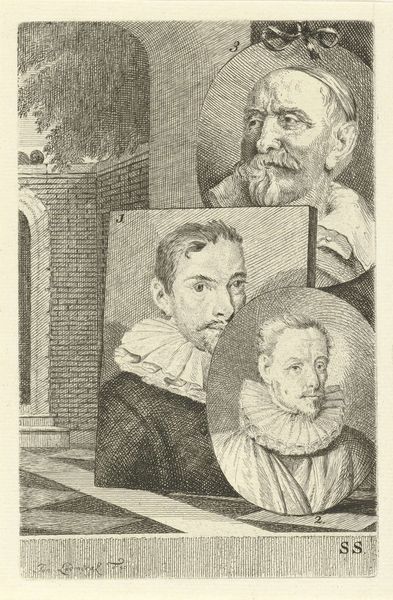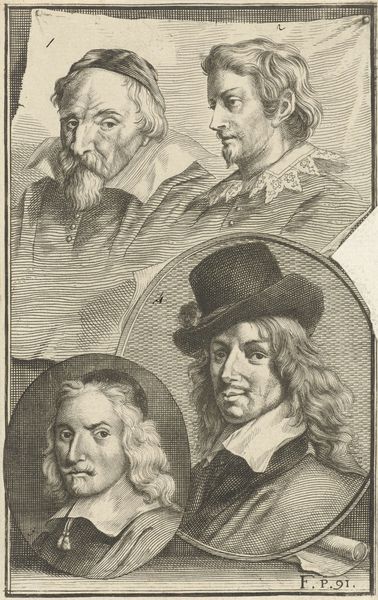
Dimensions: height 155 mm, width 102 mm
Copyright: Rijks Museum: Open Domain
Curator: Immediately, the texture grabs me. All those hatched lines, building depth and shadow… feels incredibly meticulous. What’s your first impression? Editor: It feels like a fragmented archive, doesn't it? Like a collage made from historical scraps. A little eerie, a little melancholic, all those faces gazing out from the past. Curator: It is, in a sense, a portrait compilation! This print from 1764 is entitled "Portraits of Jacob Matham, Pieter de Jode I, and Adam Elsheimer." It's attributed to Jan l'Admiral. Note the meticulous engraving, capturing not only likenesses but also, I think, the spirit of the Dutch Golden Age. Editor: Those ruffs! They look starched enough to stop a bullet. And each face has such a distinct character… the sternness of the first portrait, the more approachable countenance of the second. Almost feels like a study in personality. Curator: Yes, portraiture back then was often about conveying status, profession, or moral character, with specific attributes as signs. Looking closer, the compositions themselves, the subtle shifts in lighting... those elements give them an individualized symbolic weight, like characters in a visual family drama. Editor: Do you think the artist had personal ties to all of them? Seems a peculiar grouping. Curator: Probably not directly. The men portrayed were connected within the art world. Jacob Matham was an engraver, Pieter de Jode the Elder was a printmaker, and Adam Elsheimer a painter. It makes me think about legacy, and how artistic communities build themselves across time. They might all recognize the old saying “standing on the shoulders of giants." Editor: It certainly invites us to ponder the act of representation itself. One step removed already - engravings made to show their subjects made by other artists. Like whispers across time…slightly distorted, forever intriguing. Curator: That’s beautifully put. In a way, each of these engraved portraits contains a multitude of perspectives. A mirror reflecting a reflection, of reality. Editor: Makes you wonder what they’d make of our talking about them, centuries later. Would they be flattered, or mortified? Curator: Ah, the vanity of artists! I suspect a bit of both. For me, the picture represents time's fascinating layering: the depicted men's moment, Admiral's era, and our current viewing, as we're caught within its layered webs. Editor: A visual echo chamber, then. Maybe all portraits are, really. Food for thought.
Comments
No comments
Be the first to comment and join the conversation on the ultimate creative platform.
